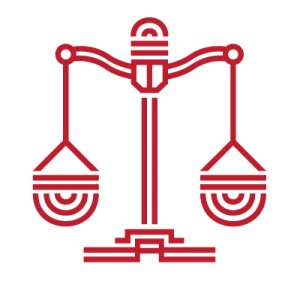Best Sanctions & Export Controls Lawyers in Midrand
Share your needs with us, get contacted by law firms.
Free. Takes 2 min.
List of the best lawyers in Midrand, South Africa
About Sanctions & Export Controls Law in Midrand, South Africa
Sanctions and export controls are key areas of law that regulate the export, import, sale, and movement of goods, technology, and services, especially those with strategic, military, or dual-use applications. In Midrand, South Africa, these regulations align with national security interests and international obligations, such as those enforced by the United Nations or other multinational bodies. Businesses in Midrand dealing in goods and technology destined for international markets must comply with both domestic and international sanctions and export control regulations. Compliance ensures that companies do not inadvertently engage in prohibited transactions or contribute to activities such as the proliferation of weapons or support of sanctioned entities.
Why You May Need a Lawyer
Legal issues relating to sanctions and export controls can be complex and far-reaching. Typical scenarios where someone may require legal advice include:
- Exporting products or technology that could be classified as controlled or sensitive
- Expanding business operations to countries subject to national or international sanctions
- Responding to investigations or inquiries from regulatory bodies
- Conducting due diligence on clients, suppliers, or partners to reduce compliance risks
- Facing penalties or possible criminal charges related to breach of sanctions or export control laws
- Seeking licenses or permits for the trade or export of controlled items
- Implementing effective compliance programs within your business
An experienced lawyer can help you understand how the law applies to your situation and guide you on how to remain compliant, thus protecting your business from legal and reputational harm.
Local Laws Overview
In South Africa, sanctions and export controls are governed by a combination of national legislation and international obligations. The key local laws relevant to Midrand businesses include the National Conventional Arms Control Act, the Non-Proliferation of Weapons of Mass Destruction Act, Customs and Excise Act, and associated regulations issued by the Department of Trade, Industry and Competition (DTIC). The South African Reserve Bank (SARB) and the Financial Intelligence Centre (FIC) also play roles in monitoring compliance.
These laws make it illegal to export certain goods, technologies, or services without proper authorization. They also prohibit dealings with entities or persons listed under national or United Nations sanctions. Businesses must perform due diligence to ensure they do not supply controlled items to sanctioned countries or individuals and should maintain strong record-keeping. Violations can lead to severe penalties, including fines, imprisonment, and loss of export privileges.
Frequently Asked Questions
What are sanctions and export controls?
Sanctions are restrictions imposed by governments or international organizations that limit or prohibit trade and financial dealings with certain countries, organizations, or individuals. Export controls are laws that regulate the trade in certain goods, software, or technology for reasons of national security or foreign policy.
Who enforces sanctions and export controls in South Africa?
The National Conventional Arms Control Committee (NCACC), the Department of Trade, Industry and Competition (DTIC), and South African law enforcement agencies share responsibility for enforcing these regulations. The South African Reserve Bank and Financial Intelligence Centre may monitor financial transactions to ensure compliance.
Do all businesses in Midrand need to comply with these laws?
Not every business, but any business that deals with exports, strategic goods, technology, or potentially sanctioned individuals, countries, or entities must ensure compliance to avoid penalties.
What are controlled or strategic goods?
Controlled or strategic goods include arms, military equipment, dual-use items (goods used for both civilian and military purposes), chemicals, and technologies that can be used in weapons production or proliferation.
How do I know if my product needs an export permit?
You can check the list of controlled goods and consult with the DTIC or a legal professional to determine if your product falls under export control regulations and requires a permit.
What are the penalties for violating sanctions and export control regulations?
Penalties can include substantial fines, the revocation of export privileges, criminal charges, and imprisonment. Violators may also face reputational damage and loss of business opportunities.
Are there any exemptions from these laws?
Some exemptions may apply based on the type of goods or their destination, but these are limited and must be verified with the relevant authority. Legal guidance is essential for determining eligibility for any exemptions.
How can my business implement an effective compliance program?
Establish clear internal policies, conduct regular training, perform due diligence on all clients and partners, maintain thorough records, and seek regular legal advice to ensure ongoing compliance.
What should I do if I receive an inquiry or notice from authorities?
Seek legal assistance immediately to understand your obligations, how to respond properly, and to protect your rights during any investigations or proceedings.
Can individuals be held liable, or only companies?
Both individuals and companies can be held liable for violations. Directors, managers, or employees involved in wrongdoing may face personal penalties.
Additional Resources
If you need further information on sanctions and export controls in Midrand, South Africa, the following resources can be valuable:
- Department of Trade, Industry and Competition (DTIC) - For export control permits and relevant regulations
- National Conventional Arms Control Committee (NCACC)
- Financial Intelligence Centre (FIC)
- South African Reserve Bank (SARB) - Exchange controls related to international transactions
- Local chambers of commerce and industry associations
- Professional legal bodies and bar associations offering access to specialist lawyers
Next Steps
If you believe you require legal assistance with sanctions and export control matters in Midrand, here are steps you can take:
- Assess whether your business dealings, exports, or clients fall under export controls or are affected by sanctions regulations.
- Gather and organize all relevant documents related to your transactions or business processes.
- Contact a qualified attorney with expertise in sanctions and export controls. Prepare a summary of your situation for an efficient consultation.
- Follow any advice or risk mitigation measures recommended by your lawyer and keep updated on changes in the regulatory environment.
- Set up or enhance your internal compliance programs to avoid future legal complications.
Taking early action and obtaining appropriate legal advice will help protect your business or personal interests and ensure compliance with all relevant laws in Midrand, South Africa.
Lawzana helps you find the best lawyers and law firms in Midrand through a curated and pre-screened list of qualified legal professionals. Our platform offers rankings and detailed profiles of attorneys and law firms, allowing you to compare based on practice areas, including Sanctions & Export Controls, experience, and client feedback.
Each profile includes a description of the firm's areas of practice, client reviews, team members and partners, year of establishment, spoken languages, office locations, contact information, social media presence, and any published articles or resources. Most firms on our platform speak English and are experienced in both local and international legal matters.
Get a quote from top-rated law firms in Midrand, South Africa — quickly, securely, and without unnecessary hassle.
Disclaimer:
The information provided on this page is for general informational purposes only and does not constitute legal advice. While we strive to ensure the accuracy and relevance of the content, legal information may change over time, and interpretations of the law can vary. You should always consult with a qualified legal professional for advice specific to your situation.
We disclaim all liability for actions taken or not taken based on the content of this page. If you believe any information is incorrect or outdated, please contact us, and we will review and update it where appropriate.











